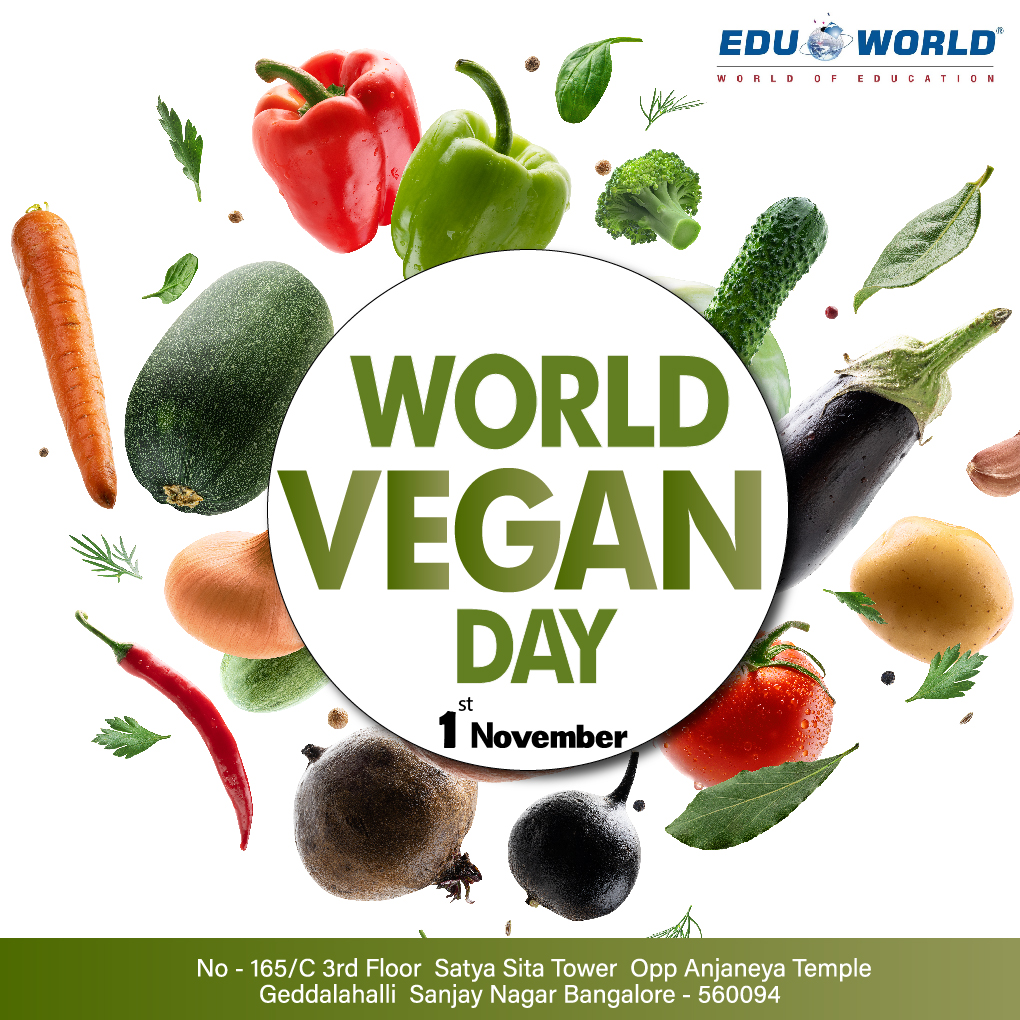World Vegetarian Day is commended consistently on November 1 to urge individuals to follow the veggie lover way of life and spread mindfulness about veganism. According to the Veggie lover Society, the vegetarian way of life benefits wellbeing, safeguards the prosperity of creatures, decreases emanations and safeguards the climate.
The historical backdrop of World Vegetarian Day traces all the way back to 1 November 1994 when ‘The Veggie lover Society’ was laid out to advance veganism and a vegetarian diet. The meaning of World Vegetarian Day is to assist people with becoming veggie lover and remain veggie lover, advancing and safeguarding the freedoms of veggie lovers, teaming up with policymakers on subjects like environmental change, reasonable agribusiness, and expanding the accessibility of veggie lover food in open organizations, and that’s just the beginning.
The Vegan Society was founded in 1944, but over 2,000 years ago, people made the decision not to eat animals. Pythagoras, a Greek mathematician and philosopher who lived in the sixth century BC, advocated for being kind to all species and ate a vegetarian diet. Even before that, vegetarianism was practiced by the Babylonian, Egyptian, and Indus Valley civilizations. According to the Vegan Society, one of the first people to make a public moral objection to eating eggs and dairy products was the famous romantic poet Percy Bysshe Shelley in 1806.
The belief that all sentient beings, including animals, should have the right to life and freedom is probably the primary motivation behind many people’s decision to become vegan. However, there are additional causes. Vegans argue that it is extremely harmful to the environment to produce meat and other animal products. They point out that growing grain for the meat industry requires a significant amount of water. The large amount of grain required by the meat industry frequently results in the destruction of forests and habitats. A vegan diet, on the other hand, requires much less grain and water to sustain itself. Additionally, many vegans assert that a well-thought-out vegan diet provides all the nutrients our bodies require and aids in disease prevention.
The nutritional sufficiency of plant-based diets, particularly vegan diets that completely eliminate all animal products, has raised some questions. Even though certain micronutrients, like iron, vitamin A, and zinc, are less readily absorbed and available in plant foods than in animal foods, vegans can still get the recommended amounts of these micronutrients by eating a well-thought-out vegan diet that includes a variety of different plant foods25. For other micronutrients, like vitamin D and vitamin B12, which are mostly found in animal foods, vegans should think about eating foods that have been fortified with these nutrients and getting enough sun exposure. As a result, vegans should keep an eye out for potential deficiencies in micronutrients. In most cases, vegan diets adhere to the recommended daily allowance of protein, albeit at a lower level than less restrictive plant-based diets. However, it should be noted that the majority of the current research in this field relies on cohort studies.
Edu world believes in the considerable evidence supports shifting populations toward plant-based diets that maximize positive “One Health” impacts on human, animal, and environmental health by reducing or eliminating the consumption of animal products.




